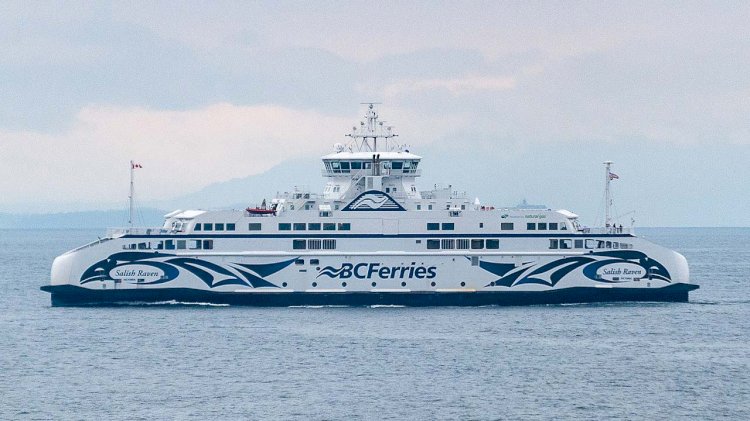BC Ferries awards contract for additional Salish Class vessels

BC Ferries continues to roll out its Clean Futures Plan and has awarded Remontowa Shipbuilding S.A. of Gdansk, Poland a contract to build an additional liquefied natural gas (LNG)-fuelled vessel scheduled to go into service in the Southern Gulf Islands in 2022.
This vessel will be identical to the three Salish Class vessels built by Remontowa for BC Ferries in 2016.
Captain Jamie Marshall, BC Ferries’ Vice President, Business Development & Innovation, said:
“Our Clean Futures Plan is our path to replace diesel fuels with cleaner energy options. While this cannot be achieved in a single step, we are continually seeking energy sources that offer a cleaner, lower carbon-intensity option to displace non-renewable diesel. In our move towards a sustainable future, adopting LNG is one way to reduce our impact on the environment today. This new vessel will be our sixth ship fuelled by natural gas.”
The agreement with Remontowa is a design-build, fixed-priced contract that provides BC Ferries with substantial guarantees related to delivery dates, performance criteria, cost certainty and quality construction. The total project budget, which includes financing and project management costs, is approximately $92.3 million.
The 107-metre Salish Class vessel will have the capacity to carry at least 138 vehicles and up to 600 passengers and crew. It will allow for the retirement of the Mayne Queen, a diesel-fuelled vessel. The ship will be powered by three Wartsila engines and electrically propelled by Schottel thrusters at each end, driven by an efficient gas-electric power plant. Onboard amenities include a Coastal Café, Passages retail store, children’s play area and a passenger lounge.
The ship will have a number of key features that support BC Ferries’ goal to be efficient and environmentally responsible throughout its system. Highlights of the Salish Class vessels include:
- The use of natural gas as the primary fuel that reduces GHG emissions by 15 to 25 per cent, reduces sulphur oxides by over 85 per cent, reduces nitrogen oxides by over 50 per cent and nearly eliminates particulate matter
- Electric propulsion that eliminates gear boxes and shaft
- Twin propellers that reduce cavitation
- Hull designed for very small wake
- Advanced hull coating that reduces flow disturbance and environmental leaching
- Engine management system that reduces machinery running
- Resilient engine mount that isolates structure borne noise



























